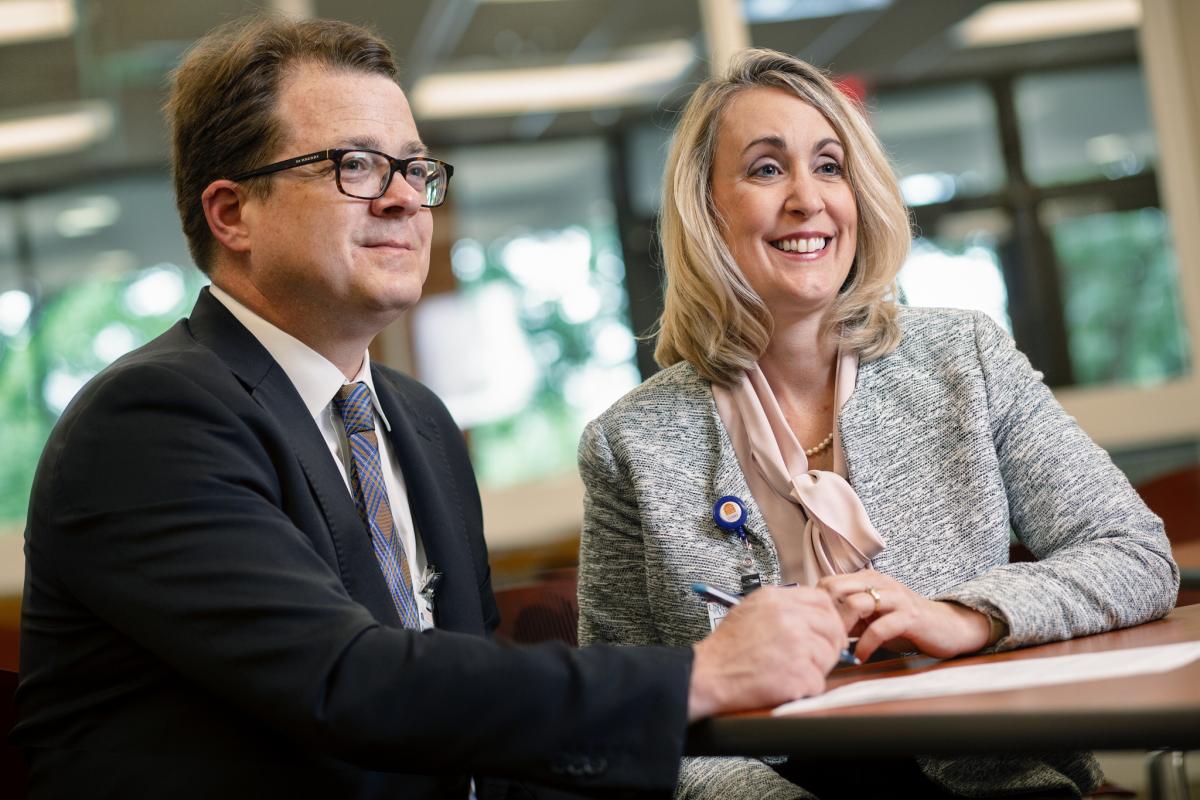Living with Autism
What if we lived in a world that was fully prepared to support the 1 in 59 children who live with autism? A world where diagnoses are made faster, interventions happen earlier, and school districts are equipped to care for the special needs of these children? At UVA Brain Institute, we are pursuing answers to challenging questions about autism’s causes and best treatments.
Unlocking the mysteries of the brain is beyond any one person. It requires building a network that is as nimble and creative as the brain itself. That’s why Kevin Pelphrey, a neuroscientist from the UVA School of Medicine, and Micah Mazurek, a clinical psychologist from the Curry School of Education and Human Development, are working together to improve methods of both the diagnosis and treatment of autism. Together, they are pioneering discoveries that will transform communities and help people with autism thrive.
“We’re beginning to understand the different causes of autism and understand how we can intervene based on those causes,” says Pelphrey. “This idea of actually using brain science to modify which treatment we select for a child is probably going to be the most important thing we can do in the next five years.”
While Pelphrey is working to make diagnoses earlier, Mazurek aims to translate those diagnoses into treatment for children.
“The earlier we can begin working with a child with autism, the better the outcome,” says Mazurek. “Beginning intervention as early as possible capitalizes on important developmental windows and maximizes children’s learning potential.”
A new model of care developed by Mazurek and her colleagues uses video conferencing to mentor and train doctors in communities who lack the resources to swiftly and accurately diagnose autism.
“By leveraging technology to support primary care providers in local communities, we are able to eliminate geographic and other barriers to care,” says Mazurek.
A unique and powerful collaboration, UVA Brain connects talented faculty and students across the University to develop better methods for understanding the brain, to seek new ways to prevent, treat, and cure brain diseases and injury, and to equip the next generation of neuroscientists and clinicians.
“Our institute is dedicated to bringing together researchers, clinicians, and educators from across UVA to creatively collaborate and bring coherent new insights to brain science,” says Dr. Jaideep Kapur, who directs the Institute.
Currently, UVA Brain forges partnerships between the School of Medicine, the College of Arts & Sciences, the School of Engineering & Applied Science, and the Curry School of Education and Human Development.
In addition to autism, UVA Brain focuses research teams in key areas, including: Alzheimer’s; Parkinson’s; epilepsy; addiction; traumatic brain injury; and neuroimmunology.

